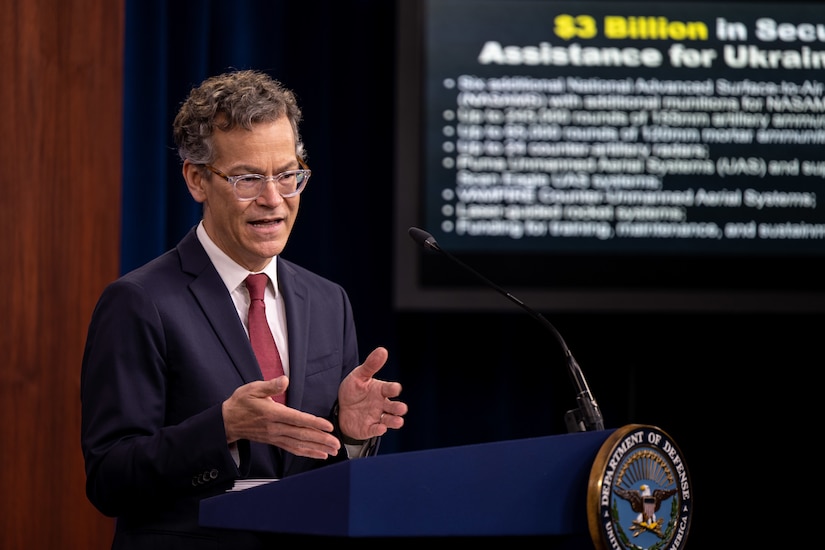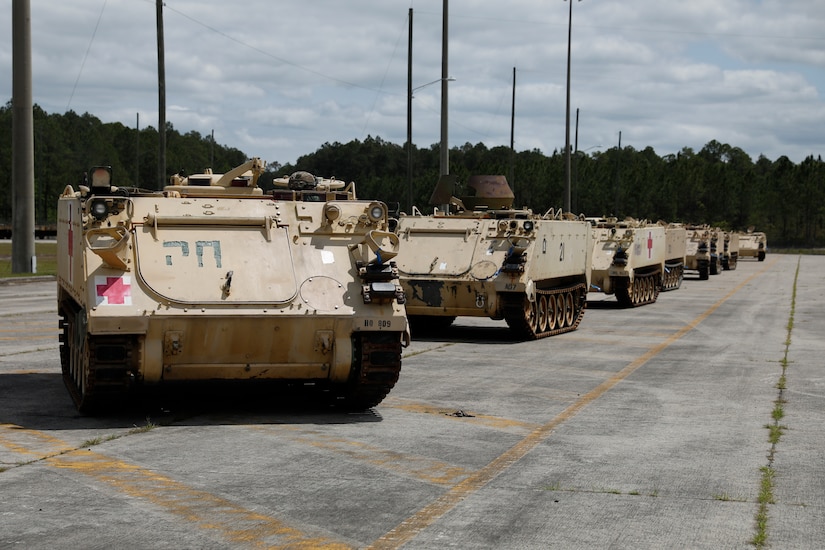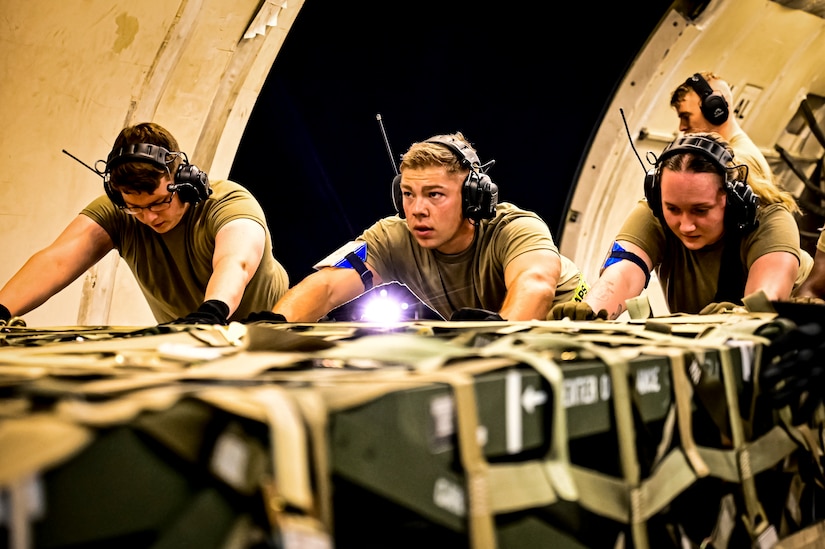Official websites use .gov
Secure .gov websites use HTTPS
Kahl briefed the group about the National Defense Strategy and said that the document lists China as the pacing threat for the United States, but that Russia poses an acute threat. "That term acute, was chosen very intentionally as signifying both immediate and sharp," he said.
China has the will and resources to challenge the United States and the rule-based international order that has kept the peace since the end of World War II. But Russia's unprovoked invasion of Ukraine shows it is a dangerous and reckless state.
Speaking on Election Day, Kahl was asked by reporters asked if U.S. support of Ukraine had bipartisan support. "I think there's a widespread recognition that the stakes in Ukraine are just bigger than Ukraine," he said.
He said elected officials from both parties understand that Ukraine is not only fighting to defend its independence and democracy but is also for a principle. "We don't want to live in a world where big countries believe that they can swallow up their smaller neighbors," Kahl said. "That is a recipe for global disorder and large countries going on the march. We've lived in a world like that before: it was called the 1930s. And it ended in the most catastrophic global conflict in human history."
The rules-based order is in place to preclude this naked grab for resources and power. "We don't want to live in a world where the rules of the international system are torn up, because the strong do what they will and the weak have to suffer what they must," he said.
Kahl charted the progress Ukraine has made. The Ukrainian military defeated Russia's initial campaign to grab the capital of Kyiv and forced the Russians to retreat to the east.
More recently, the Ukrainian military launched a counteroffensive against Russian troops in the northeastern part of the country outside Kharkiv. The Ukrainian military has also stabilized the lines in the Donbass and the army continues to make methodical progress around Kherson.
"There's some indications that the Russians intend to withdraw to the east bank of the Dnieper River," he said. "They are repositioning their forces in in some ways that could be interpreted as providing cover for an orderly withdrawal so that they don't have the kind of disorderly withdrawal they had up in Kharkiv."
Still he is cautious noting that there are still tens of thousands of Russian troops in Ukraine. "We'll have to see how that plays out," he said.
Winter may or may not close down the fighting in the country. The "mud season" has already started in Ukraine, making operations more difficult.
"But I can say one thing with confidence, which is, Russia has already suffered a massive strategic failure," he said. "That's not going to change."
Putin's goal was to extinguish Ukraine as an independent, sovereign democratic country, the undersecretary said. "He's failed, and that's not going to change. A sovereign, independent, democratic Ukraine is going to endure," he said.
Putin wanted to prove that Russia was still a global power with an extraordinarily overwhelming military, Kahl said. Victory over Ukraine would allow Russia to coerce and intimidate its neighbors. "Putin has failed," he said. "Russia will emerge from this war weaker than it went in."
The Russian military has lost tens of thousands to Ukrainian guns and bombs. "They've … probably lost half of their main battle tanks," he said.
And the Russians have expended the majority of their precision-guided munitions with no chance of replenishing stocks due to sanctions and export controls levied on the nation for the invasion. "They are not going to emerge from this war stronger; they are going to emerge from this war much weaker than they went in," Kahl said.
Putin also figured the war would divide the West. "It's produced the exact opposite," he said. "NATO is more united than ever. We're on the precipice of Sweden and Finland, probably joining the alliance, which … make the alliance much stronger vis-a-vis Russia."
"I don't know what winning looks like," he continued. "But I do know that Russia will not have achieved the objectives that Vladimir Putin set out. And that's pretty much a guarantee."
The United States and like-minded nations will continue to provide the appropriate level of assistance to Ukraine. The United States will also work with like-minded nations to counter and deter Russia.
"Whatever that appropriate level of assistance is, we're committed to making sure it continues, if for no other reason, than because … Vladimir Putin has a theory of victory here," Kahl said. "And his theory of victory is that he'll just wait us all out."
Putin believes the West will tire from the war, the inflation the war causes and the high energy prices. "I think it's incumbent upon all of us to signal to him, it's not going to work," Kahl said.
Choose which Defense.gov products you want delivered to your inbox.
The Department of Defense provides the military forces needed to deter war and ensure our nation's security.





